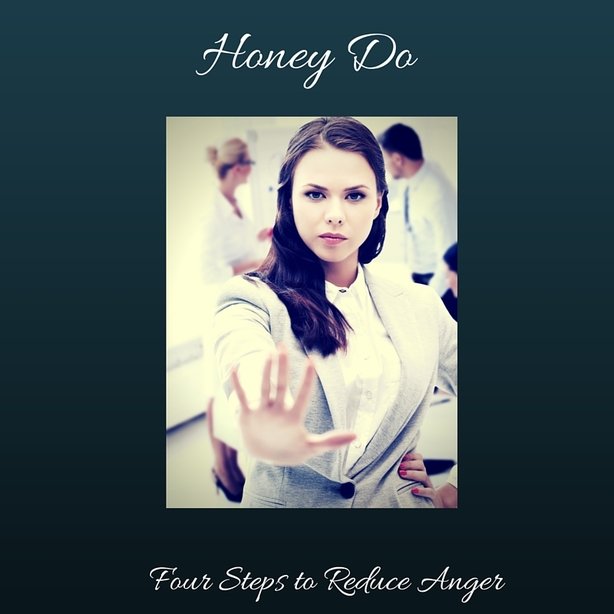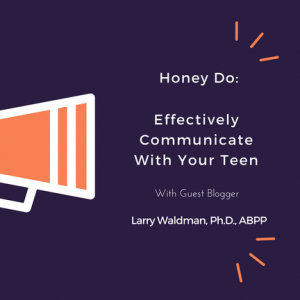I often start my therapy sessions by asking, ‘what was the most pleasant thing that happened to you today?’ It immediately pulls the person’s attention to something that created a positive emotion for them.
Because I strive to find the ‘and’ in all things (blame my training in Dialectical Behavior Therapy), it would not be balanced if I did not ask, ‘what was the most unpleasant thing that happened to you today?’ Depending on the response I get, I know what the session will focus on, at least a good part of it …
I sat across from an adolescent who shared that the most awful thing that happened today had been going on for a week- she and her best friend are no longer friends anymore. In fact, the former friend has since issued out a campus style all-points bulletin of one of my client’s most painful, heart-breaking secrets, shared only because they agreed to be best friends.
‘Well dear,’ I say, ‘how does that make you feel?’
With squinted eyes, furrowed brows, and tightened jaws, she replied – ‘I feel angry!’
“Whoa, wait. Hold up, let’s pump our breaks … you feel angry?” I asked curiously. “Yeah, angry,’ she responded, ‘and if she even thinks about saying one more thing about me, I am going to fight her!’
So if you work with me, you know that this is the point where I give information about primary emotion that becomes secondary emotion due to the judgments we have about the situations we are in. I then check for the possibility of feeling some other emotion before the anger that was noticed, like sadness, disappointment, fear …
This kiddo did not budge- anger was all she felt, and all she noticed.
The situation inspired me to write this post because we all have felt and reacted to anger. I would like to propose that when we react to anger instead of some other emotion, things usually go from bad to worse.
Even now I remember getting caught letting a friend copy off my quiz in health class. I remember a buddy of mine laughing his head off at our being called out by the teacher, once the quiz ended.
At my threshold of tolerance for the heckling that was going on, I remember shouting obscenities across the room at him because I was sad that I compromised my integrity for the sake of helping a friend and I didn’t like being teased about my poor choice.
Now, not only did I fail the quiz, I received three days of detention all because I reacted out of anger (my secondary emotion) instead of sadness (my primary emotion.)
So, I encouraged this young lady to do the same things that I am encouraging you to do when you notice anger and are in a pinch:
1. When you are not upset, take an internal tour. Think of a time that you were angry. Notice what your body does when you have the emotion. Notice what your face felt like, your stomach, your hands. Notice areas that felt hot and sweaty, cold even. Simply notice. It is important to check-in before getting upset so you are mindful of what your body does when anger is rising.
The next time you are in an unpleasant situation and those things are firing off, you are aware of what is happening and are prepared to move to the next step.
2. Place something cold over your ‘third eye.’ That is the space right between your eyebrows. There are a lot of nerve endings there. The coolness will slow your breathing and heart rate down, as well as give you the space to think about making your next move your best move. Do this between fifteen to thirty seconds.
I advised my client to go to the nurses’ office and ask for an ice pack. And if you do not have a nurses’ office nearby, consider using a cube of ice from the freezer, or a frozen pack of peas for that matter. Anything that is frozen should do the trick.
3. Take four mindful breaths. Four seconds in through the nose and five seconds out through the mouth. Continue this while keeping the icy item between your brows.
It is really important to get the breath calm. Throw yourself in the breath, and noticing how cold that ice pack is against your forehead.
4. Take a timeout. Distract. Distract. Distract. Okay, you have finished holding the ice pack over your third eye, and finished your four mindful breaths. You completed an internal tour and things have settled. Now is a great time to do something that is pleasant to help in stepping further away from emotion mind to your wise-mind, your higher self.
Once you noticed anger has decreased and maybe some other emotion popped up that would be far more skillful to lead with, approach the situation, if it is wise to do so and problem-solve from this new space.
So my message to you?
Honey, do take four steps to reduce anger …
And, if you have questions about this approach, please call me at 702.980.5036 for a free fifteen minute phone consultation. I would be happy to provide additional support.
Peace!




